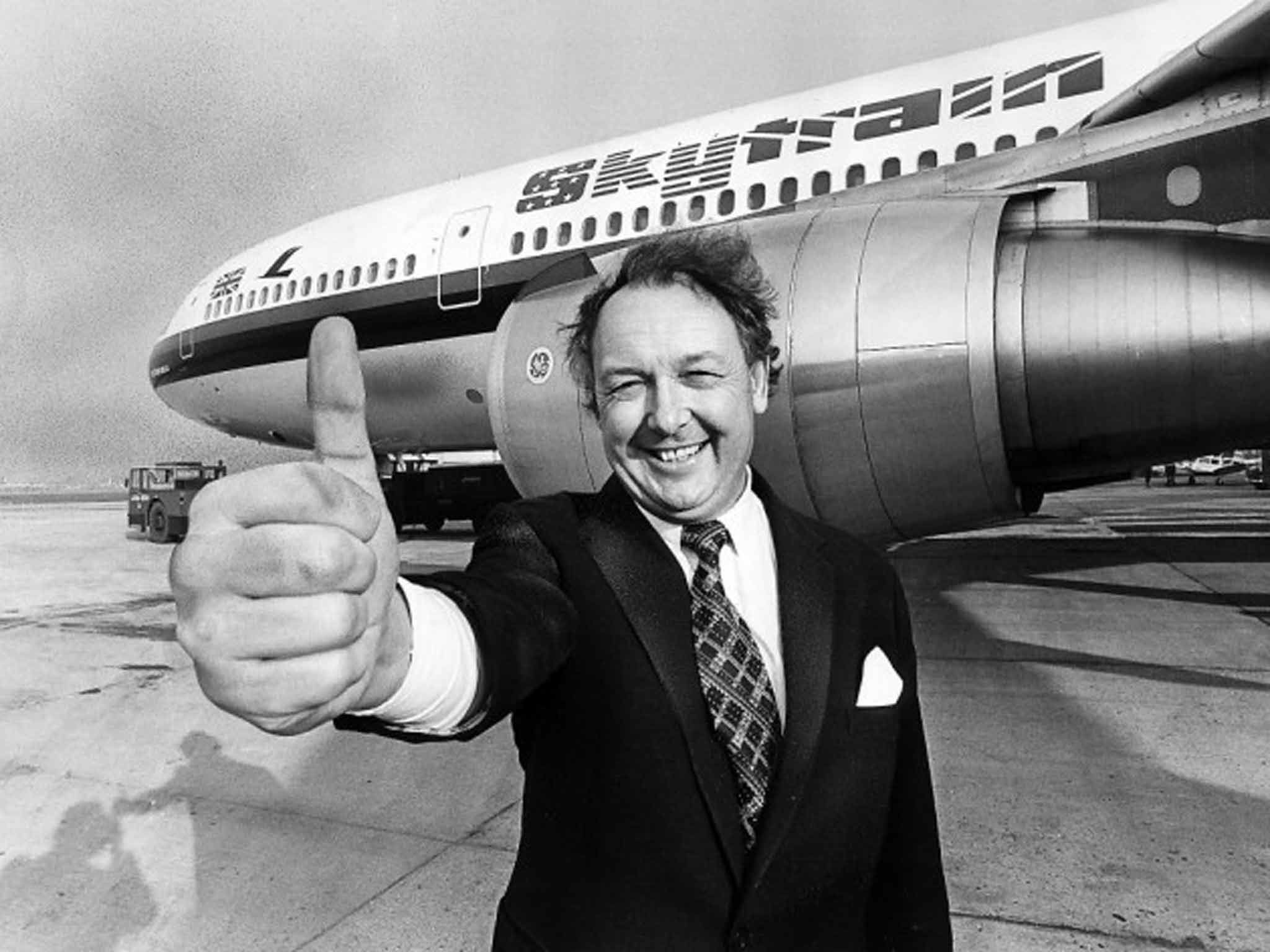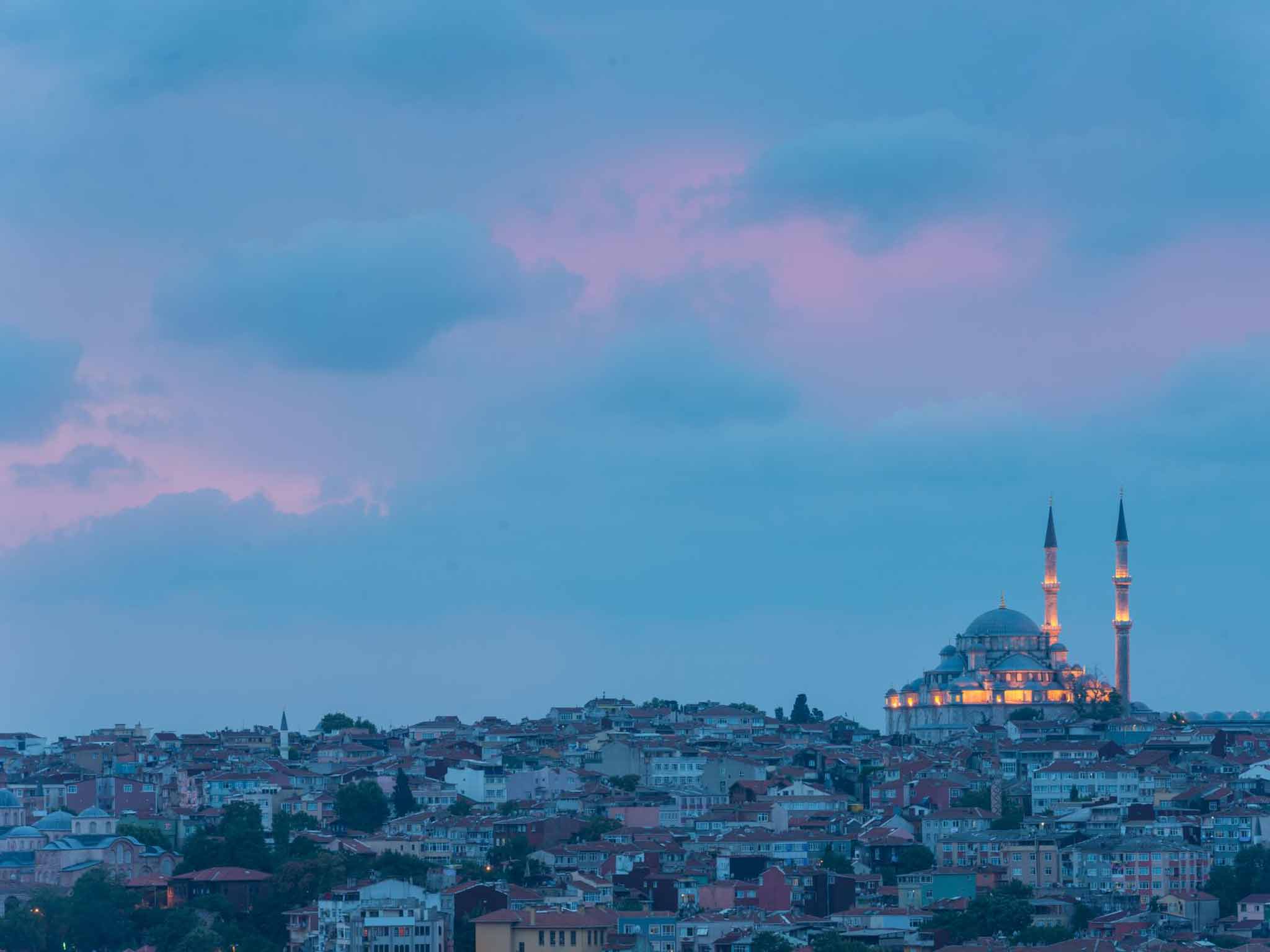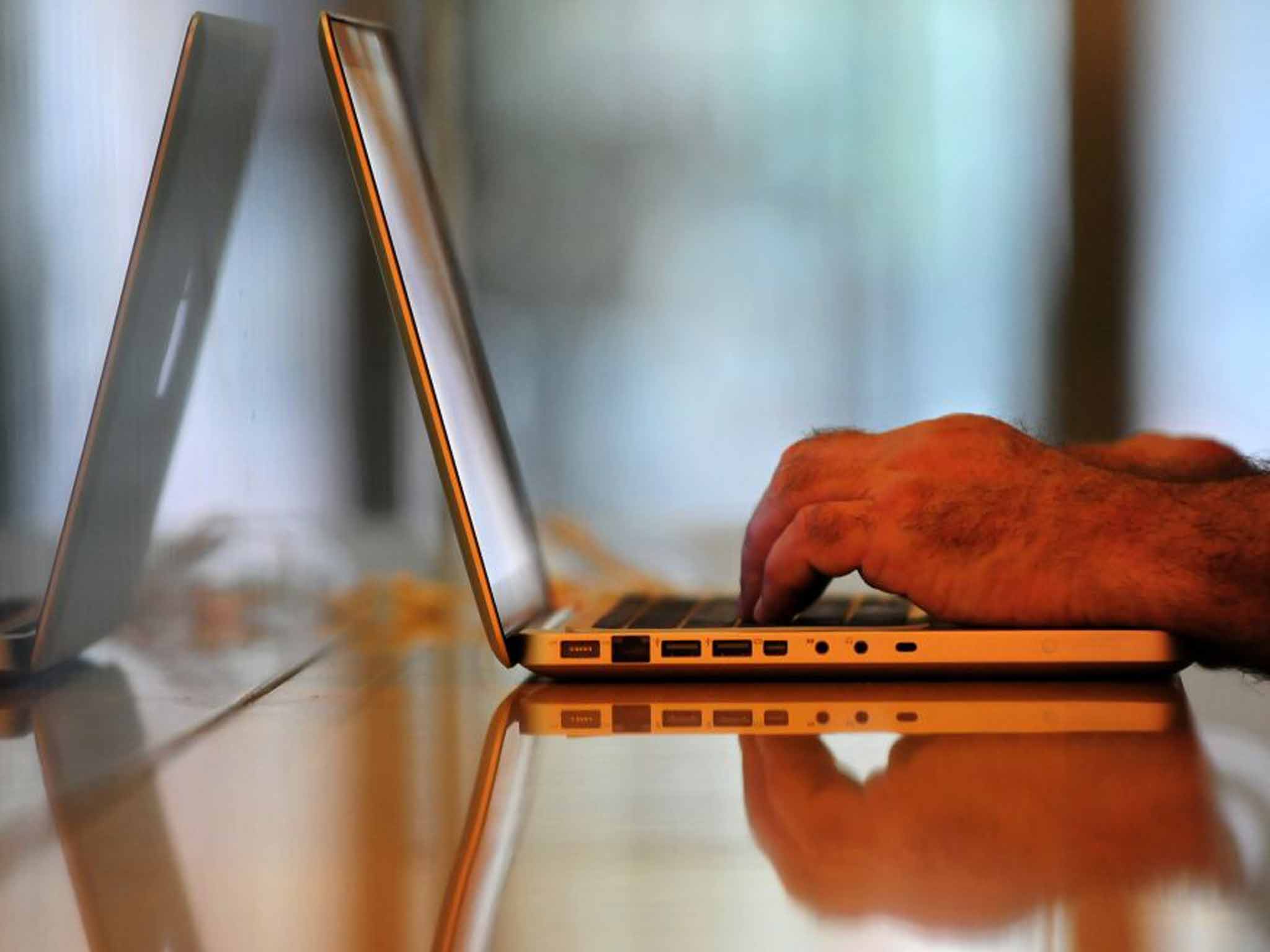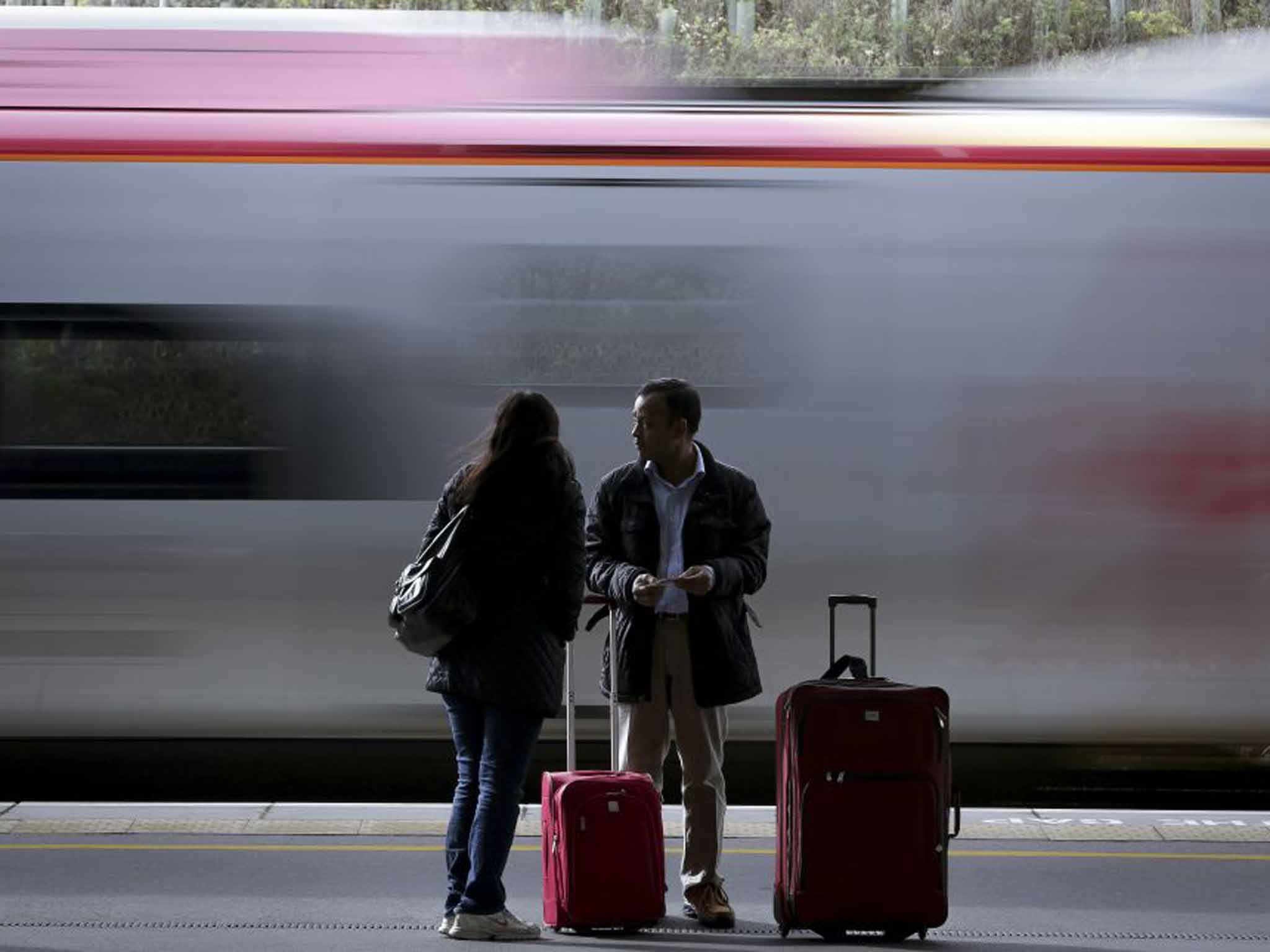How have holidays changed since 1986? Simon Calder looks back on three decades of Independent travel
Inspiring, enlightening and consumer-focused: that has been our guiding mission since the paper's launch 30 years ago

At precisely the moment my flight to Germany last Saturday morning was due to depart, I finished my coffee and put away my laptop. Then I looked out of the café window to watch G-EZAA touch down.
While sitting at Gatwick airport, I had tracked the Airbus as it flew in from Luxembourg – not because I'm a planespotter, but because easyJet's website told me it was the aircraft intended for my flight. While it was still airborne there was no point hurrying to the gate. I had seen the aircraft (which, as I found in an instant, was made in Hamburg and has just celebrated its 10th birthday) make landfall at Bexhill. The passengers then took a meandering aerial tour of Sussex: north to Crowborough, south-west towards the Downs, pivoting around Chanctonbury Ring before turning east over Old Dungate Farm to line up for the final approach to the busiest runway in the world.
As the easyJet plane turned to head for gate 25, so did I. Along the way, I passed a couple of signs of these troubled times. A pair of planes at gates 11 and 12 were waiting to fly to Istanbul. Passengers were checking their smartphones anxiously, as news arrived about another suicide bombing in Turkey's largest city.
At gate 17, eight security officers were deployed to search the cabin baggage of the passengers boarding Virgin Atlantic flight 43 to Las Vegas – even though hand luggage and anything they could have acquired “airside” had already been screened. “Can't be too careful,” is the approach of the US Department for Homeland Security, set up in the wake of the 9/11 attacks.
The delay stretched to an hour. “There are no timetables, only rumours,” declared Charles Nicholl in his Colombia adventure story, The Fruit Palace – which appeared in paperback synchronously with The Independent's first paper edition. Today you can find a timetable to anywhere you want in seconds. (The train that clambers through the Bogotá hinterland to the Zipaquirá, location for an extraordinary underground cathedral hewn from salt, leaves at 8.15am tomorrow; miss it and you must wait for a week.) On Britain's railways, travellers who buy Virgin West Coast tickets online rather than following the quaint Victorian tradition of queuing up to buy a printed piece of cardboard are rewarded by automatic compensation if it gets held up by more than half-an-hour.

The internet liberates travellers from humdrum tasks, freeing time for more important things: to think and to dream. Talking of which, Henrik Wergeland gas just wafted past the window; the bespectacled Norwegian poet who wrote “the dawn of freedom, bright day of truth/shines over the sky” now has his pensive portrait stencilled on the tail of a 737. The Boeing belongs to Norwegian, whose boss has just promised to base 150 new jets at Gatwick for low-cost international flights – so long as the Sussex airport gets a second runway.
Twenty-four hours later, the CNN business presenter Richard Quest was due to touch down aboard the Norwegian flight from New York – the final leg of a circumnavigation using only budget carriers. Thirty years ago, such a trip was impossible. Laker Airways had gone bust in 1982, and Sir Freddie's 1996 revival of the brand from Gatwick to Fort Lauderdale failed to enthuse the public.
Back in 1986 you could count the number of European no-frills links on the digits of a three-toed sloth: Virgin Atlantic from Gatwick to the Dutch city of Maastricht; Luton to Belfast on Britannia; and Luton to Dublin on a new Irish airline called Ryanair. Virgin and Britannia soon concluded there was no future in short-haul budget flying, a decision they may rather have regretted. Despite heavy losses, Ryanair stuggled. In 1986, the Irish airline carried a total of 82,000 passengers; last Saturday, it flew more than that before lunch.
As the easyJet delay stretched to an hour, my lunch plans for Bavaria faded – and a Jumbo jet rumbled past gate 25. The 747 (G-VAST, 18 years old, one careful owner) was in the familiar colours of Virgin Atlantic. Just as easyJet and Ryanair have provided formidable competition for British Airways' domestic and European flights, so Sir Richard Branson's airline has transformed long-haul flying and spurred BA to raise its game.
In 1986, Virgin Atlantic's Jumbo fleet was firmly established at Gatwick. If the founder had had his mischievous way, most passengers would be flying in Riff-Raff class. But he was persuaded to take the safe option of plain old “economy”.
Even with punitive taxes, riff-raff like you and I pay far less to fly in 2016, in real terms, than we did in 1986; and we are far safer. BA and Virgin have had some exciting moments in the past three decades, but no fatal accidents. Ryanair and easyJet, who between them will carry three times the UK population this year, are equally impressive.
In pretty much every respect, travel in 2016 is safer than 1986, but it doesn't always feel like that. While the safely arrived passengers from Luxembourg left the aircraft, I checked the latest Flydubai statement on that morning's crash at Rostov-on-Don and updated the story at independent.co.uk.

Much has changed in aviation in three decades, besides tougher security. The technically minded will point to engine technology and backstage electronics, while most of the rest of us will rejoice in improved inflight entertainment and the smoking ban. Yet a time-travelling planespotter from the late 1980s would recognise most of the planes on the ground at Gatwick – outside and in.
The lucky passengers taking off to Las Vegas were having the same basic experience as they would have done in 1986: flying in the same slightly cramped seats arranged in exactly the same configuration, at the same speed. No sign of a successor to Concorde, grounded in 2003; far more people have saved time from the introduction of Eurostar than ever flew on the supersonic jet.
As you will read over these six pages devoted to three decades of Independent travel, there's a strong sense of plus ça change, plus c'est la même chose in travel: the more things change, the more they stay the same. Travel remains the best catalyst for enriching experiences. Paris, Amsterdam and Rome offer the same blend of culture, cuisine and the secret joy of discovering hidden corners of a strange city. Mediterranean beaches continue to provide an escape from the daily routine (though these days with more conscientious application of the factor 15). And a trip to Australia, where I first ventured in 1986, is still the trip of a lifetime reached by a flight that seems to last half a lifetime and costs around £800 return.
The biggest difference is the internet. The dot-com era began a year before The Independent, with the first registration of a .com company. For a decade the online world was a minority sport. But travel drove normal people towards the world-wide web. Three days before the end of 1996, Alaska Airlines sold the first online air ticket; easyJet soon followed suit, and became the first airline to incentivise online booking by offering discounts and priority access for customers who used the web.
The way to expand any new technology is robustly to incentivise people to adopt it. Ryanair's decision to make online check-in mandatory, and levy what amounted to on-the-spot fines on passengers who unwittingly failed to do so, looked draconian. But it accelerated the natural convergence of travel and the internet.
The world-wide web connects billions of travellers to billions of options for flights, accommodation and ground arrangements. TripAdvisor is supplanting professional guidebook researchers with an aggregation of enthusiastic online amateurs. And delayed passengers can instantly see that while Gatwick is all a-drizzle, Bavaria is basking in sunshine.
They can also check email. “Hi Simon,” began a new message from Louise King. “We have an Eastern Mediterranean cruise in the summer that includes an overnight stop in Istanbul. Do you think the cruise companies will change their itineraries in light of the problems in Turkey?”
In 1986, Frank Barrett, The Independent's first travel correspondent, described Turkey as “the last unspoilt place on the Mediterranean”. He added: “Turkey looks as though it will not remain unspoilt for long. Horizon, Britain's third-largest holiday company, last week published its first special Turkey brochure with package deals starting at £199 for seven nights.”
In April 2016, you can get a week in Turkey for barely half as much. Airtours (now part of Thomas Cook) is selling a week's package from Belfast to Dalaman for £101. Including breakfast.
In reply to Louise's cruise question, I applauded her choice of destinations – particularly Istanbul, the location for our very first 48 Hours In ... report in 1989. I said that while there are never guarantees of absolutely, the risk involved in a visit to the vast and welcoming city is tolerable. The Foreign Office is unlikely to warn against travel to tourist areas of Turkey and oblige cruise lines to change course. More likely is that her firm might decide of its own volition to steer clear of Istanbul. But I hoped that the call would go ahead, and she would get the chance to visit the extraordinary city with a heritage as spectacular as its location. East meeting west is all the more important these days.
I'm not sure whether my response reached her in microseconds or minutes; Gatwick's free wi-fi was wobbly. But while you and I might deplore the slow death of postcard writing, it is difficult to put a price on near-instantaneous communication and the ability to share synchronous images and emotions with friends and family across the planet.
The first Saturday travel section of The Independent filled two-thirds of a broadsheet page. But the content was distinctly different.
At a time when travel opportunities were blossoming, Frank Barrett championed the reader. My colleagues and I on the travel desk of The Independent have strived to continue that approach, and provide all the inspiration and information you need in print. From tomorrow, we switch wholly online – the realm in which travellers plan their journeys and record their experiences.
Wherever you are, and whatever the time, you can expect crisp reports, advice and news. On 14 June, for example, the extension opens at London's Tate Modern, and the new cross-Solent hovercraft is unveiled. Freed from the chains of a print-based desk, we can assess how to tackle the Tate and how 1960s transport technology adapts to the 21st century. You can seek our views immediately – or wait for your familiar Independent travel pages, arriving as part of the digital Daily Edition each Saturday.
Events, of course, rarely turn out as the traveller plans or the internet predicts. Each journey is shared with those unreliable companions, misfortune and serendipity. Last Sunday afternoon, for example, day-trippers to Neuschwanstein – the architecture-meets-opera confection of Ludwig II, which Walt Disney used as a model for Sleeping Beauty's castle – were treated to a Disneyesque scene. After some severe operational difficulties, a member of The Independent's travel desk was last seen standing precariously on the rear bumper of a dark blue Mercedes estate as it sped uphill to the Bavarian fantasy. But that's another story, for another day and another medium. Online.

My 1986
Mark Ellingham, founder, Rough Guides
Travel was pretty exciting in 1986. We had launched Rough Guides four years earlier and had just reached 10 titles. Independent travel was expanding in ways that seem hard to imagine now. China was opening its gates for the first time since the revolution, while in Eastern Europe the walls were about to collapse – so we commissioned guides to the whole region – and a couple of years later felt proud to hear them parroted on the TV news as reporters rushed to cover the end of Ceausescu or Jaruzelski.
It's odd to recall how pioneering travel to such places seemed at the time. Even a city like Prague was a complex novelty. Rough Guides aimed to provide inspiration and confidence for people to get up and go.
Hilary Bradt, founder Bradt Guides
I can remember buying the first edition of The Independent, so I must have been in Britain at that time. In 1986 I went to Madagascar for a month to research the first-ever guide in English to that country. I stayed on to lead my most disastrous trip ever. I describe one incident: “... Sitting in a fishing boat, whose engine had died, rocked violently by a rough sea, in shark-infested waters, at sunset, a mile from the shore, with no life jackets or radio ...” And that was just the beginning of what went wrong. On the publishing front I published three books, all travel narratives, rather than guides, and announced that I was planning five new guides in 1987. One of them was Madagascar, which is now in its 11th edition.
Thirty years of wars has been catastrophic for the countries involved but has allowed us to make our mark as the first to publish guides to formerly war-torn countries. In many cases we can truthfully say we've played our small part in encouraging tourists to return with the resulting economic benefits.
Tony Wheeler, co-founder, Lonely Planet
In 1986 I did a frenetic 48-day loop around India updating the LP India guide, using an Indrail pass and then an Air India pass. Then a month later with Maureen [Wheeler, wife and co-founder] and the children (age 3 and 5), we went to the Cook Islands for nearly a month, where I wrote the LP Cook Islands guide. And there were three trips to the US: a month in San Francisco running the office (just me), two weeks in San Francisco-New York (Maureen and me), finally arriving in LA on 30 December with the kids (now 3 and 6) en route to Mexico.
Just before the Cooks trip I'd bought a pioneering Toshiba “laptop”, by far the smallest computer around. I took it with me, the first time an LP writer had travelled with such a device. It had one 3.5 inch floppy drive. You put in a disk with WordStar and loaded that on to the laptop and then swapped it for a second floppy on which you entered the text.
Join our commenting forum
Join thought-provoking conversations, follow other Independent readers and see their replies
Comments